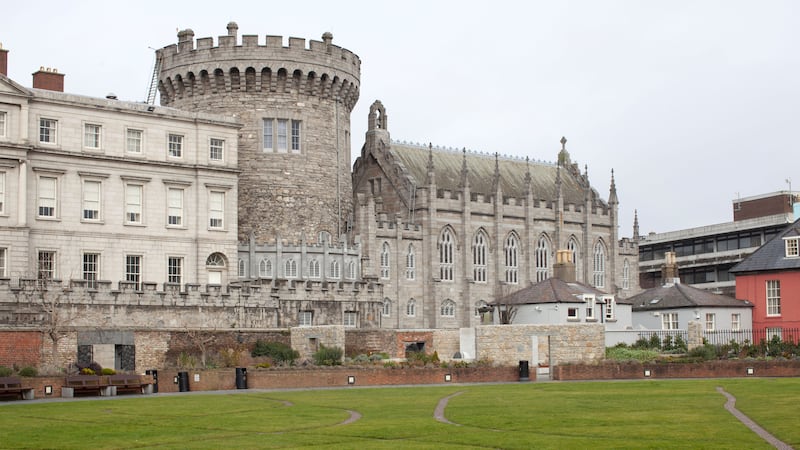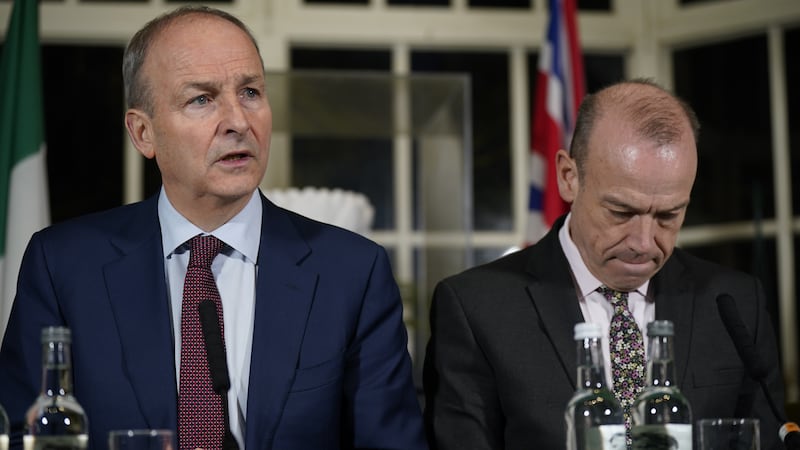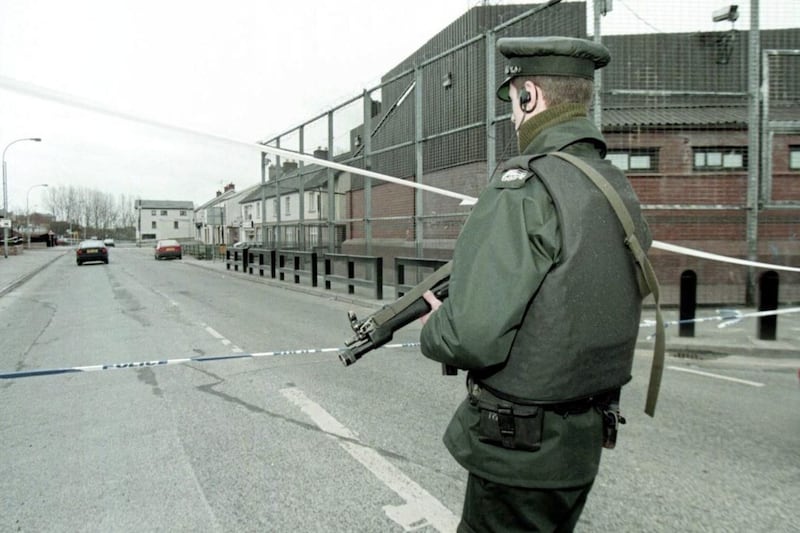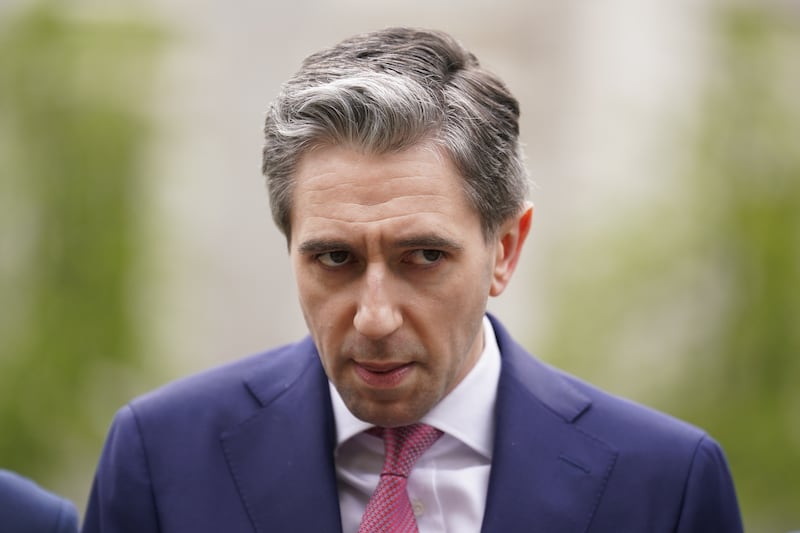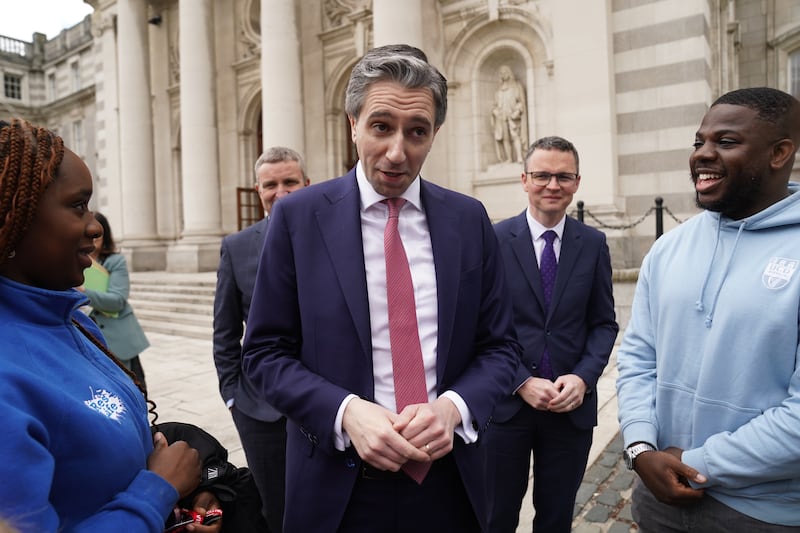The Government’s overspend on entertainment for a visit to Ireland by European culture ministers threatened to bankrupt a caterer, archive documents show.
The culture ministers had a three-day visit on the week of St Patrick’s Day to mark the beginning of Dublin’s stint as European city of culture in 1991.
The president of Iceland, Vigdis Finnbogadottir, who was the first democratically elected female head of state, visited in October of the same year.
According to documents released in the State Papers, towards the end of the year an official in the Department of the Taoiseach expressed concern to a colleague about the lavish overspending on state entertainment.
Catherine Eddery wrote to Frank Murray to express her concerns about spending on wine, gifts and dining beyond the Department’s annual allocation.
A day before the Icelandic president’s visit, Department of Finance official Simonetta Ryan wrote to the protocol section of the Department of the Taoiseach to warn them that cuts need to be made.
The request for expenditure of £30,000 in relation to the dignitary’s visit was concerning, she said on October 1, as “every effort must be made to curtail expenditure on entertainment”.
“I am concerned that it is proposed to spend £3,600 on discretionary items such as flowers at a time when your vote is under severe pressure to meet the cutbacks imposed by Government.”
In 1989, the Department of Finance sent a memo to all other departments to state that it is “necessary to again stress the need for the strictest economy in expenditure on entertainment by ministers and officials”.
It said amounts over the limits were allowed only in “exceptional” circumstances and where the approval for such an overspend was sought “well in advance”.
There are several letters released in the archives of Ms Ryan responding to requests for expenditure for state entertainment, including £15,756 for the Canadian prime minister’s visit in July, and £3,609 for the visit of speaker of the US House of Representatives Thomas Foley in September.
Ms Ryan conveyed the sanctions, subject to conditions that they did not go over the funding allocations, but the excess spending still caused problems.
Following the trip by the Icelandic president, Ms Eddery said that although a caterers’ invoice for £12,025 for the presidential dinner was submitted, the Department of Finance had “refused to process any further expenditure incurred by this department”.
It said this was because the limit of £110,000 for the year had already been reached.
When a representative of the caterers was told that an immediate payment would not be made, he “conveyed his deep dissatisfaction and indicated that if he is not paid immediately, his company will go bankrupt”.
The note also stated that the overrun in the state entertainment allocation was because of the £31,153.04 cost of hosting the European culture ministers earlier in the year.
“This section was not aware of the visit when the 1991 estimates were being prepared,” it said.
The expense included 25 gifts from Galway Irish Crystal worth a total of £2,063.18 given to the delegation, a catalogue of ‘Treasures of Ireland’ costing £373.75, and chauffeur services totalling £8,071.50.
The trip began with a reception hosted at Dublin Castle by Minister of State Maire Geoghegan-Quinn, costing £8,400 to provide finger food for 1,200 people.
A dinner in The Berkeley Court Hotel later that day cost £3,946.59, including 27 dinners for ministers and 17 dinners for officials as well as £158.36 on liqueurs.
A state banquet held in the Royal Hospital Kilmainham for the culture ministers and their officials on March 16, the following day, cost £2,241.99.
The event, which was co-hosted by Mrs Geoghegan-Quinn and the Lord Mayor of Dublin, included 52 meals worth £25.95 a plate, and 32 meals worth £12.50 a plate.
In May, Ms Ryan warned the Department of the Taoiseach that the sanction sought for an invoice of £3,847 in relation to the banquet was “seriously in breach of the limits”, both in terms of numbers and the amount to be spent per person.
“It is necessary to get Finance sanction in advance of incurring expenditure beyond the limits set out and this should be brought to the attention of all persons involved in organising official entertainment.”
For the Icelandic president’s visit, £12,025 was requested for catering services at the state dinner hosted by President Mary Robinson in Dublin Castle on October 2.
This included around 220 ‘presidential’ meals, and pre and post-dinner drinks worth £3,272.
Separately, wine from Findlaters cost £3,987.54 and was also expensed.
The following day, a Government luncheon held in the Department of Foreign Affairs headquarters, Iveagh House, incurred a separate cost of £3,349.95.
The material can be viewed in the National Archives in file 2023/1/276
